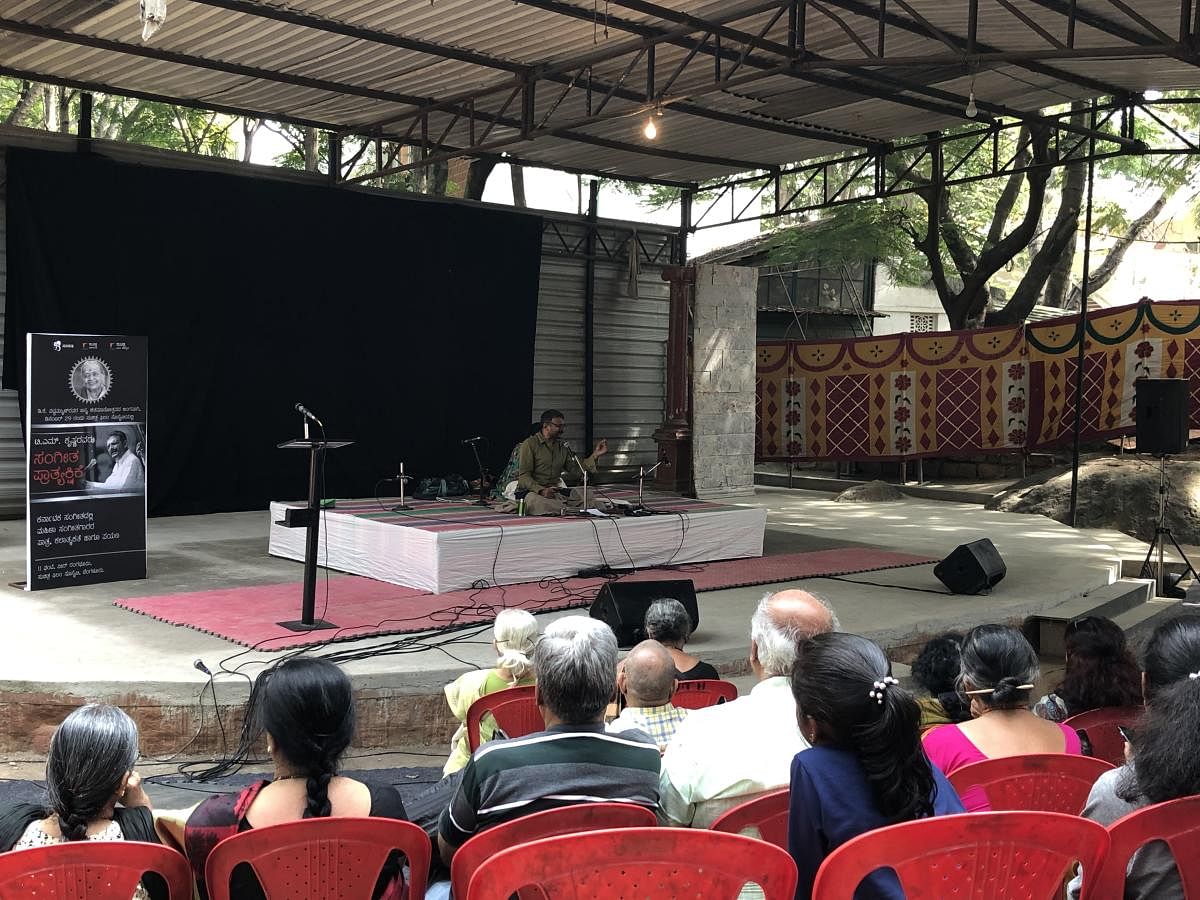
Sitting cross-legged on a stage, TM Krishna delivered a lecture on gender and music to mark the centenary of DK Pattammal. He spoke to an attentive audience that filled the amphitheatre at the Suchitra Film Society.
“I sincerely apologise for my gender,” he began, noting the irony and problematic nature of a man tracing the history of gender and Carnatic music.
Tracking the history of the style, he said that it’s important to acknowledge that it began with women. “Devadasis, although their identity has been reduced to mere prostitutes now, were elite performers of dance and music. It was for them that the composers made the music,” he said.
He also observed that many temple carvings and frescoes showed women in prime positions while performing.
While he touched upon the topics of concert structure, appropriation, elitism and more, he concluded by comparing the styles and career paths of four prominent figures — T Brinda, Pattammal, MS Subbulakshmi and ML Vasanthakumari.
He concentrated on Pattammal and MS Subbulakshmi, comparing their backgrounds and trajectories. He looked at how Pattammal came from a Brahmin family and subverting the mainstream was easier for her as compared to Subbulakshmi who had to ‘brahmanise’ herself and distance herself from her devadasi background to be considered in the mainstream.
With this, he punctuated the fact that social identities of caste and gender are inexplicably linked.
Coming to contemporary times, he talked about how even now the contribution of women has been moved to the margins. “Even when the icons I talked about were at the top of their game, male musicians would refuse to accompany them. You would think that much has changed with the times, but it hasn’t. Even now I know of musicians who make up excuses not to play along with women; popular ones being that their music is not ‘robust’ enough and that the attention goes to the women; not because of her talent but because she is physically a woman,” lamented Krishna.
He added that the worst part is that no one seems bothered by it. He added that while it may seem that there are many female artistes, discrimination doesn’t always lessen because of numbers. “It has got to do with power and who holds the power, it is still the men who hold the power,” he said.
He ended by saying that while there has been some discussion on the position and aesthetics of women in Carnatic music, the discussion must be expanded to include
transfolk and other queer artists as well.